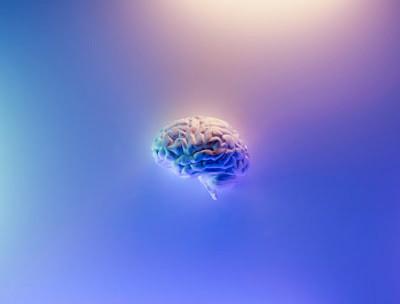Sounds like hype: there's scant evidence the 'binaural beats' illusion relaxes your brain
Curated from: theconversation.com
Ideas, facts & insights covering these topics:
4 ideas
·969 reads
7
Explore the World's Best Ideas
Join today and uncover 100+ curated journeys from 50+ topics. Unlock access to our mobile app with extensive features.
Binaural beats
Binaural beats are an auditory illusion that has stress-busing properties. Proponents claim that listening to binaural beats can boost focus, promote relaxation, and reduce stress and anxiety.
However, some studies concluded that the impact of binaural beats on cognitive performance "remains to be seen."
41
350 reads
Explaining binaural beats
- Binaural beats is a perceptual illusion that happens when two slightly different frequencies (notes) are played into each ear separately, usually using headphones.
- The resonance between the two frequencies is interpreted as a third sound - or binaural beat - and is heard as a frequency between the two played frequencies.
- The claim is that this third frequency prompts brain cells to begin firing at the same frequency, which purportedly is similar to the frequency of brain waves that occur during deep sleep at our most relaxed states.
44
216 reads
Different types of brain waves
Specific frequencies are thought to be involved in specific cognitive tasks.
- During deep sleep, the predominant brain activity occurs with frequencies between 1 and 4 Hertz (delta waves.) Delta waves are associated with learning and motivation.
- Theta waves (4-7Hz) are linked to memory and emotional regulation.
Brain entrainment - where brain cells fire at the same frequency - is a real effect that happens in response to particular rhythmic frequencies perceived by our senses. A deep-pitched musical tone can cause your brain cells to start firing at the same frequency.
47
182 reads
Research conclusions on binaural beats
- The authors played binaural or monaural (normal) beats to 16 participants, and recorded their brain activity with EEG.
- They found both beats can entrain the brain to their particular frequency, but participants described no significant effect on their mood changes.
- However, binaural beats can generate "cross-frequency connectivity," where the brain coordinates its activity across different types of brain waves.
- It's then possible that binaural beats can be beneficial to some types of cognition, including memory recall.
- An analysis of 35 studies demonstrated a modest effect on attention, memory, anxiety, and pain perception. However, these were not tested in the current study.
39
221 reads
IDEAS CURATED BY
Friend of animals everywhere. Hardcore internet enthusiast and avid reader. My favorite topic is how to live a healthy life
Cora H.'s ideas are part of this journey:
Learn more about health with this collection
How to write clearly and concisely
How to use proper grammar and punctuation
How to structure a business document
Related collections
Similar ideas
4 ideas
4 ideas
Binaural Beats: The Auditory Illusion People Claim Can Heal Your Brain
discovermagazine.com
7 ideas
Here’s How Music Can Help You Concentrate
healthline.com
Read & Learn
20x Faster
without
deepstash
with
deepstash
with
deepstash
Personalized microlearning
—
100+ Learning Journeys
—
Access to 200,000+ ideas
—
Access to the mobile app
—
Unlimited idea saving
—
—
Unlimited history
—
—
Unlimited listening to ideas
—
—
Downloading & offline access
—
—
Supercharge your mind with one idea per day
Enter your email and spend 1 minute every day to learn something new.
I agree to receive email updates

